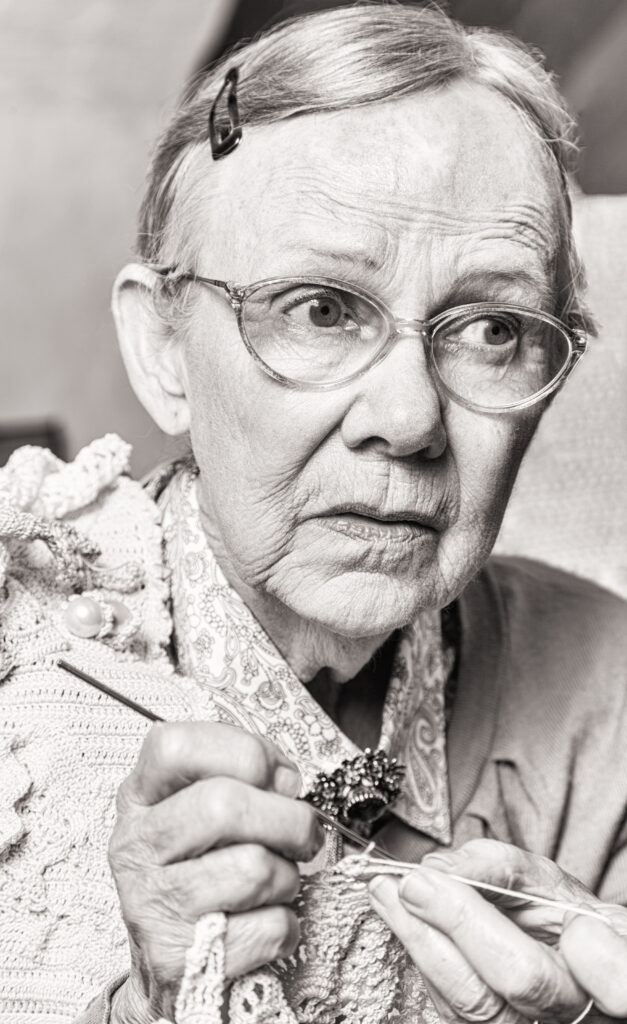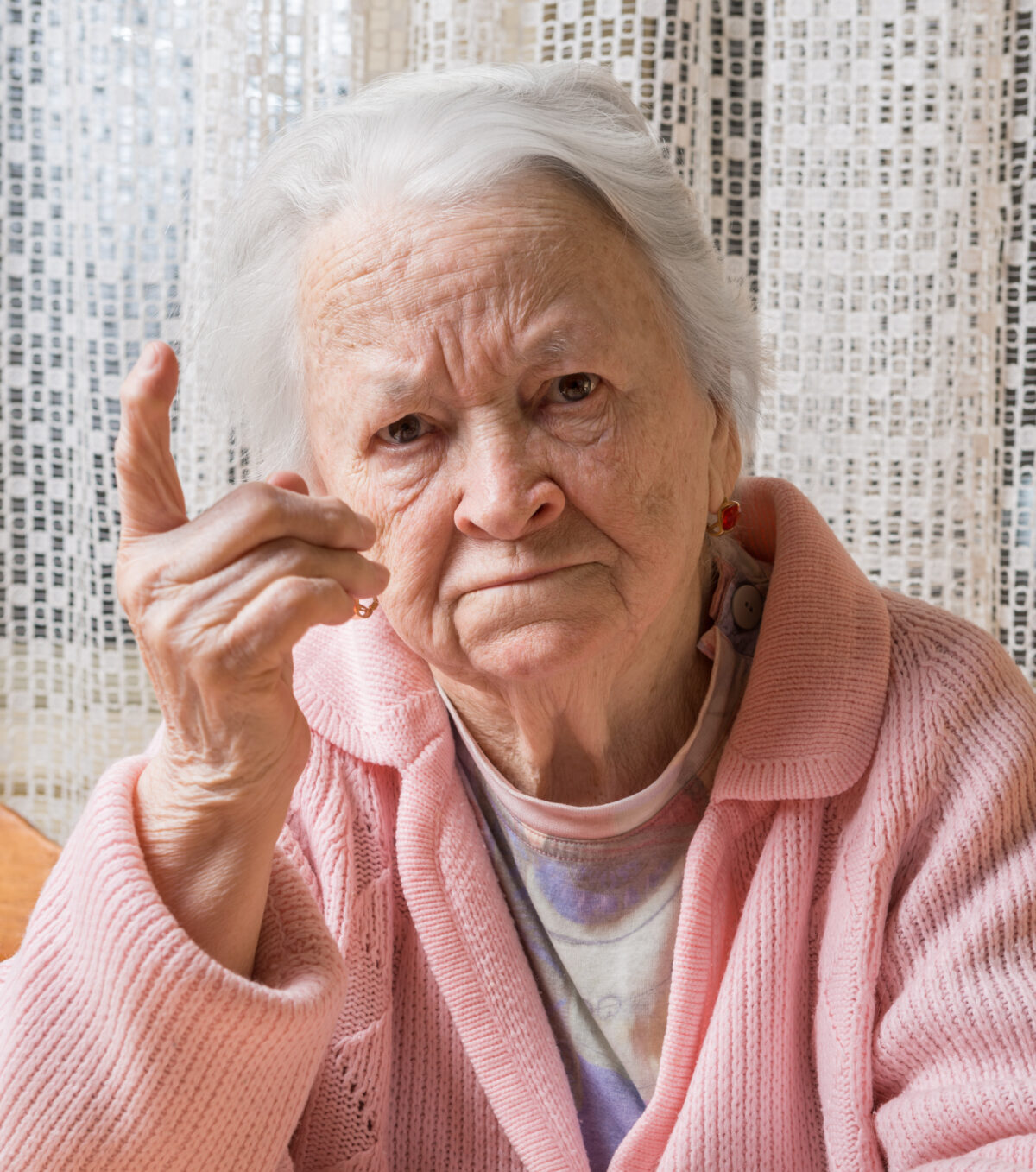The abuse of dementia caregivers is a hidden problem that no-one wants to talk about. Such carers are mostly women, and when they are abused, for a variety of reasons they find it hard to talk about. Often they have no training on how to care for a person with dementia, and get little support or thanks.
Because of my own experience of caring for a beloved elderly relative who had dementia, I want to speak up for abused carers, share knowledge about abusive dementia behaviours, and encourage these carers to find their voice and seek support.
Carers need support
As the population ages, so will the need for dementia care. It is vital that carers struggling with the stresses of caring for dementia patients at home get the support they need.
I am not the only one who believes that at least some elder abuse occurs where stressed and exhausted dementia carers, with no training or support, eventually snap and turn on their patient.1
Reports show that up to 30 per cent of carers are abused1 — a statistic that is being ignored. The real numbers are probably much higher because the carers don’t want to rock the boat or aggravate the situation they face, or simply fear they will take the blame. A carer is vulnerable, especially as the paranoia of dementia deepens.
A carer is vulnerable, especially as the paranoia of dementia deepens.
Many carers are family. Most of us have seen evidence of people being harder on those they love than they are on strangers, or even people they don’t like. We tend to show our family members every side of ourselves, including the least flattering ones, because we feel safe enough with them to just “let it all hang out”.

This typically holds true for our care recipients as well. Age and illness — including advancing dementia — bring a host of difficult emotions to the surface for seniors, and caregivers are subjected to their anger, fear, frustration and sadness about their circumstances.
For some, though, there are deeper problems lurking behind an elder’s moodiness and outbursts. These feelings may turn into abusive behaviour or exacerbate an already abusive personality.
This behaviour can include outbursts which are not always visible to others in the family – the name-calling and accusations happen only when the patient and carer are alone together.
The carer can describe this to others (especially family) who have difficulty imagining that this carer abuse is happening. They can only think that the patient is speaking of “real” events — such as items being stolen or other supposedly suspicious behaviour by the carer — when the opposite is true.
Thus the carer is now incredibly vulnerable to being thought of as an abuser when actually the carers themselves are the victims of the disease process of dementia.
How do carers of dementia patients protect themselves from accusations of stealing or doing harm to their patient?
In my case, I wish I had had clear guidelines about paranoid dementia like these:
About paranoid dementia
Early symptoms of paranoid dementia can include increased suspicion, distrust and accusations, particularly towards family members and caregivers.2 These symptoms can manifest as believing belongings are being stolen, feeling constantly watched, or misinterpreting situations and conversations as malicious.
It’s important to note that these paranoid delusions can develop gradually and worsen over time, but sudden onset or rapid worsening may indicate delirium and require immediate medical attention.
Early signs of paranoia in dementia:
- Increased suspicion and distrust
Individuals may become more suspicious of those around them, even close family members or caregivers, and may accuse them of stealing or hiding things.
- Delusions and false beliefs
They may develop false beliefs that they are being persecuted, cheated on, or that people are out to get them.
- Misinterpretation of events
Cognitive decline can lead to misinterpretations of situations and conversations, which can be perceived as hostile or threatening.
- Changes in perception
People with dementia may experience changes in their perception of the environment, leading to feelings of disorientation or confusion about their surroundings.
- Personality changes
Some individuals may experience mood swings, increased anxiety, or agitation.
- Difficulty with memory and cognitive tasks
They may struggle with memory tasks, such as remembering recent events or finding the right words.
Important considerations
- Gradual onset
Paranoia in dementia often develops gradually, so it’s crucial to pay attention to subtle changes in behaviour and thought patterns.
- Distinguishing from delirium
If paranoid symptoms appear suddenly or worsen rapidly, it could be a sign of delirium and requires immediate medical evaluation. (Delirium can have similar symptoms to dementia, but is related to medical issues.)
- Seeking professional help
If you are concerned about a loved one exhibiting these symptoms, it’s essential to seek professional help from a doctor or specialist.3
I was aware the relative I cared for had dementia from the comments she made to me, which included calling me dumb, a thief and a bully and swearing at me. I always put this behaviour down to dementia, and it wasn’t until later that I realised how much it had hurt me and that it was abusive.
But worse were the comments of my unbelieving family, who said I was making it up.
My relative simply did not act this way around the others in the family, which is quite common in dementia.
When I, the carer, tried to talk to the person with power of attorney for the patient, I wasn’t believed. Whatever I reported about the behaviour of the elderly person I was caring for (who had not yet been diagnosed with dementia) was held against me — the carer.4
Unable to defend myself
While still caring for the person, I was accused of being the abuser, a charge I was unable to defend myself from. It would have made a substantial difference if I had been able to show the person with power of attorney the above guidelines about paranoid dementia.
I am from a teaching background, specialising in music. While caring for my elderly relative, I was part of a group which set up Music Moves Me, a trust promoting music therapy for dementia patients. We worked to get trained music therapists, music groups and musical instruments into old people’s homes in the region where I then lived.
I helped raise money for the trust and gave many speeches to groups about music therapy and dementia. The trust ensured that I was giving accurate information.
The more that is known about dementia the better, and dementia patients deserve compassionate care, free from abuse.5 But dementia carers — who are often working under enormous stress, and often have emotional bonds tying them to the patient –need support too. I am passionate about making their voice heard and ensuring their needs are met.
Kath Woodley has had a career as a school teacher, and has been a carer in a number of different situations.
References
-
- Cooper, C., Selwood, A., Blanchard, M., & Livingston, G. (2010). Abusive behaviour experienced by family carers from people with dementia: the CARD (caring for relatives with dementia) study. Journal of Neurology, Neurosugery, and Psychiatry, 81, 592-596.
- Cloak, N., Schoo, C., & Al Khalili, Y. (2024). Behavioral and Psychological Symptoms in Dementia. In: StatPearls [Internet], Treasure Island (FL): StatPearls Publishing.
- National Institute for Health and Care Excellence (NICE). (2018). Dementia: assessment, management and support for people living with dementia and their carers. NICE guideline, NG97.
- Guideline Adaptation Committee.(2016). Clinical Practice Guidelines and Principles of Care for People with Dementia.
- American Psychological Association. (1998). Guidelines for the evaluation of dementia and age-related cognitive decline. American Psychologist, 53, 1298-1303.



